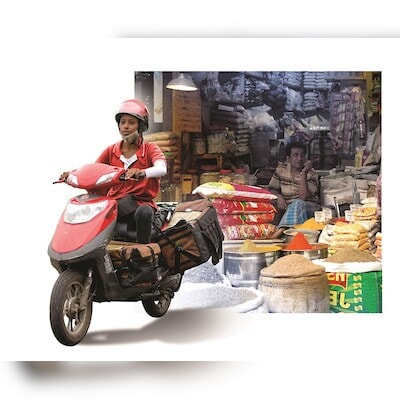Ahead of festive season, quick commerce firms push into tier 2+ markets | News

Ahead of the festival season this year, India’s burgeoning quick commerce sector is on an expansion spree. After making the model work in metro cities, players operating in the space are rapidly expanding into smaller tier 2 and beyond markets.
This past week alone, Swiggy’s quick delivery arm, Instamart, has entered five new cities, launching in a new city every 33 hours. The firm has entered 10 new cities over the past two months, including Thrissur, Mangalore, Kanpur, Udaipur, Warangal, Salem, Amritsar, Bhopal, Varanasi, and Ludhiana. Instamart now operates in a total of 42 cities.
Zomato-owned Blinkit has also been on a similar expansion journey. Over the past two weeks, Blinkit chief executive officer Albinder Dhindsa has announced the company’s foray into cities like Kochi, Bhatinda, Haridwar, and Vijayawada.
Meanwhile, Mumbai-based Zepto—flush with funds after raising over $1 billion in funding over the last year—had announced plans to enter ten new cities, up from the top 10 metro cities it already operates in. These include markets like Jaipur, Chandigarh, Ahmedabad, and others.
The tier 2+ challenge
However, expansion into smaller markets poses its own set of challenges. According to industry watchers, quick commerce firms operate on thin margins, relying on high order frequencies and higher average order values (AOVs) to bolster their margins.
With weaker demand in tier 2 and beyond regions, scaling up in these markets might pose a challenge. For instance, in February last year, Zomato had announced it had exited 225 smaller cities, which contributed just 0.3 per cent to its consolidated gross order value (GOV).
However, top executives at these firms indicate that there have been no hurdles in terms of demand in these newer markets.
“The enthusiastic demand from smaller towns and cities has been incredibly encouraging. Our expansion into these new locations marks a significant milestone, allowing even more people to experience the ease of having thousands of products—from everyday essentials to electronics and toys—delivered in just 10 minutes from both national and local brands,” said Instamart’s newly appointed chief executive officer Amitesh Jha.
One of Instamart’s stores in Mangalore, for instance, reached 1,000 orders in a single day faster than many of its larger metros, according to the company. Moreover, Thrissur has emerged as one of the fastest cities, delivering over 1,000 orders in just four minutes.
An execution game
According to experts, if demand does not pose a challenge, success for quick commerce players in smaller cities would depend on execution.
Companies are, therefore, heavily focusing on launching dark stores in viable, high-density areas to ensure operational needs are met.
“We have a very tight geo-selection and network design process when it comes to launching dark stores. We look at dozens of factors like road patterns, traffic density, geographic centricity, weather patterns, real estate prices, and the size and proximity of residential societies, among other factors. So, we are feeling pretty good about it (store expansion),” Zepto chief executive officer Aadit Palicha told Business Standard.
To ensure fast adoption in these smaller markets, quick delivery firms are also partnering with local brands and vendors to provide customers with products that resonate with their regional preferences.
Swiggy Instamart is enhancing its offerings by partnering with local brands and vendors, ensuring that customers have access.
For instance, in Mangalore, Instamart is listing products from brands like Narans Foods and Ideal Icecream. Similarly, in Bhopal, products from Top N Town Breads and Andaah are available on the platform, while Thrissur residents can shop for Milma Milk and Navua Bakers products.
Blinkit, too, has onboarded local brands like Milma Milk, Ajmi Puttu Podi, and Eastern Masalas in cities like Kochi.
With competition intensifying in the rapidly growing quick commerce space, these companies are expanding their networks of dark stores across the country ahead of the festival season, not just in smaller markets.
E-commerce major Flipkart—the most recent entrant into quick commerce—has rolled out “Minutes” in Bengaluru and Gurugram. Ahead of its upcoming flagship sale event—Big Billion Days 2024—in October, the firm is planning to open nearly 100 dark stores across top cities.
Blinkit is aiming to increase its dark store count to 2,000 from the current 639 by the end of 2026, most of which will be in the top 10 cities. Meanwhile, Zepto is planning to expand its store count from 350 currently to 700 by March 2025.
First Published: Sep 10 2024 | 5:55 PM IST




